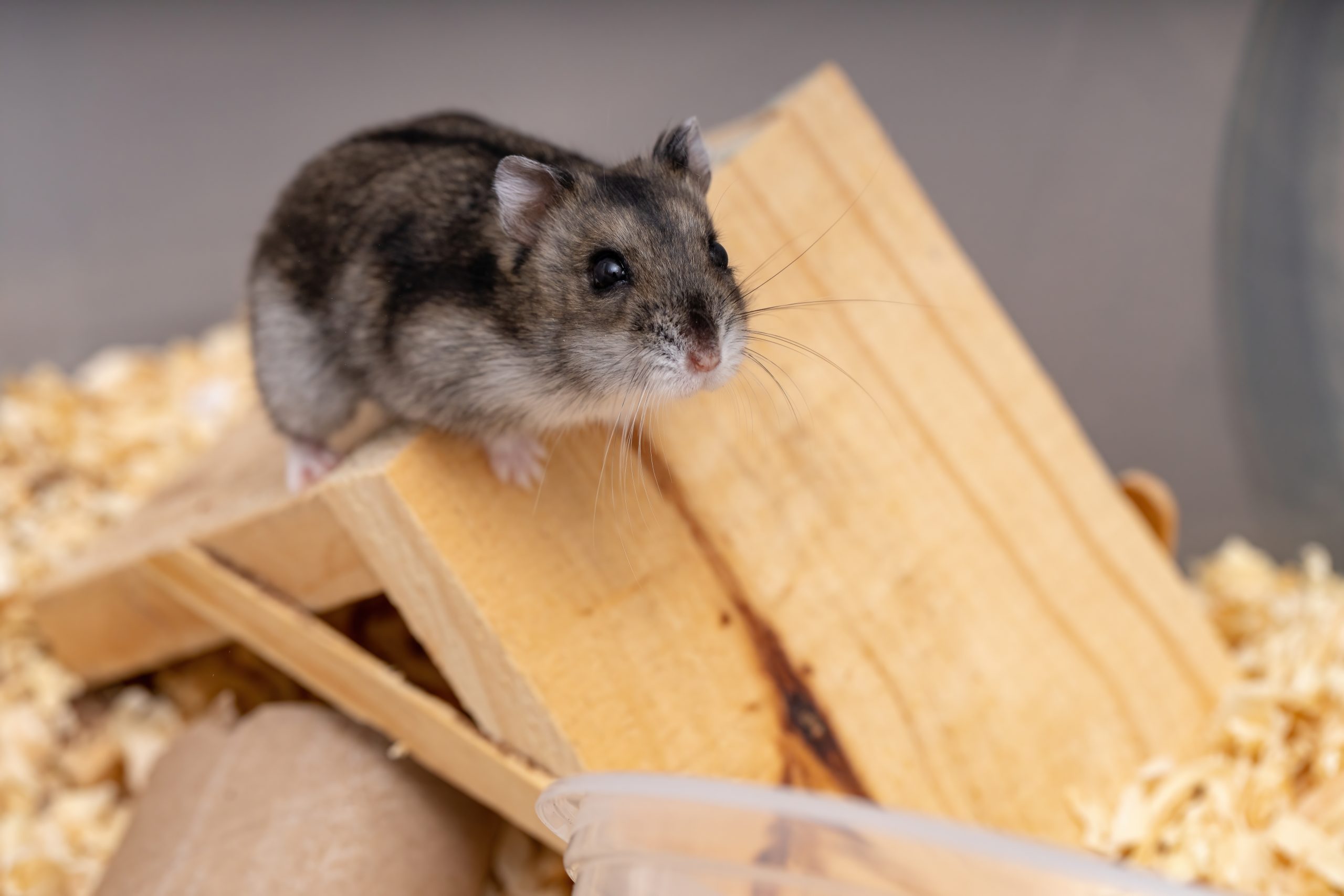RVC study sheds light on hamster health problems

The RVC has published new research revealing the 20 most common disorders and the typical lifespan of pet hamsters.
The study, the largest in the world to date, investigated anonymised veterinary clinical records of a random sample of almost 4,000 hamsters.
The three most common hamster species were Syrian (golden) hamster (73.5%), Djungarian (winter white dwarf) hamster (13.8%) and Roborovski hamster (6.4%).
From a list of the 20 most common disorders across all hamster species, the most common disorders were “wet tail” – (diarrhoea or liquid discharge) (7.33%), bite injuries from other hamsters (5.88%), overgrown nails (4.13%), overgrown front teeth (3.98%) and traumatic injury (3.80%).
The average age at death across all hamsters was 21 months (1.75 years).
The RVC says a better awareness of the average lifespan of pet hamsters should help veterinary surgeons build realistic expectations for hamster owners and may also help owners accept the animal welfare benefit for euthanasia.
It is also helpful to help children understand the typical natural lifecycle of pet hamsters.
Other findings included:
- The most common causes of deaths were “wet tail” (7.9%), abdominal mass (6.4%), cancer (5.4%) and difficulty breathing (4.0%).
- Compared to other types of hamster, Syrian (golden) hamsters had higher risk of 7/20 (35%) common disorders and lower odds of 1/20 (5%) common disorders groups.\
- Disorders with highest risk in Syrian (golden) hamsters compared with hamsters that were not Syrian (golden) included: female reproductive disorder (x 5.19), urinary system disorder (x 5.04) and appetite disorders (x2.68).
- The disorder with the lowest risk in Syrian (golden) hamsters was traumatic injury (x 0.34).
- The average lifetime disorder count across all hamsters was one disorder although the Syrian (golden) hamster had a higher number of disorders than the other two species.
Dr Dan O’Neill, Associate Professor in Companion Animal Epidemiology at the RVC and lead author of the paper, said: “Hamsters can make good pets for both adults and children but until now, very little was published about their health.
“Parents can now help their children with realistic expectations of how long their hamster may live and what are the most common conditions to look out for to protect the health of these delightful little creatures.”
The RVC has an advice sheet on hamster care here: https://rvc.uk.com/hamster-care.







